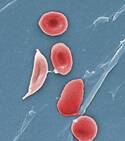Hematology, Legal-Malpractice, Pharmaceutical Companies / 04.01.2025
Oxbryta Lawsuit: What It Means for Patients and the Pharmaceutical Industry
Oxbryta, a groundbreaking treatment for sickle cell disease, brought hope to patients suffering from this debilitating condition. Approved by the FDA in 2019, the drug was designed to improve hemoglobin levels and reduce the painful complications associated with the disease.
However, recent legal claims have sparked concern among patients and the pharmaceutical industry. Allegations surrounding the drug's safety and efficacy have led to a wave of lawsuits, potentially altering the landscape of sickle cell treatment.
The emergence of Oxbryta injury lawsuits raises serious questions about the accountability of pharmaceutical companies and the adequacy of drug safety protocols. Patients who relied on Oxbryta to improve their quality of life now face uncertainty, with some alleging that the medication caused unexpected side effects or failed to deliver promised results.
For many, these lawsuits represent a quest for justice and compensation for the harm endured, while for the broader healthcare industry, they highlight the critical need for transparency and rigorous testing.
This article sheds light on the impact of Oxbryta lawsuits on patients and the pharmaceutical industry, addressing key concerns and implications for both parties.
(more…)





 Bone marrow aspiration is a medical procedure where a small amount of the liquid part of your bone marrow is removed for examination. A
Bone marrow aspiration is a medical procedure where a small amount of the liquid part of your bone marrow is removed for examination. A 


 Prof. Hiddo Lambers Heerspink, PhD PHARMD
Department of Clinical Pharmacy and Pharmacology
University Medical Center Groningen
Groningen
Prof. Hiddo Lambers Heerspink, PhD PHARMD
Department of Clinical Pharmacy and Pharmacology
University Medical Center Groningen
Groningen





















